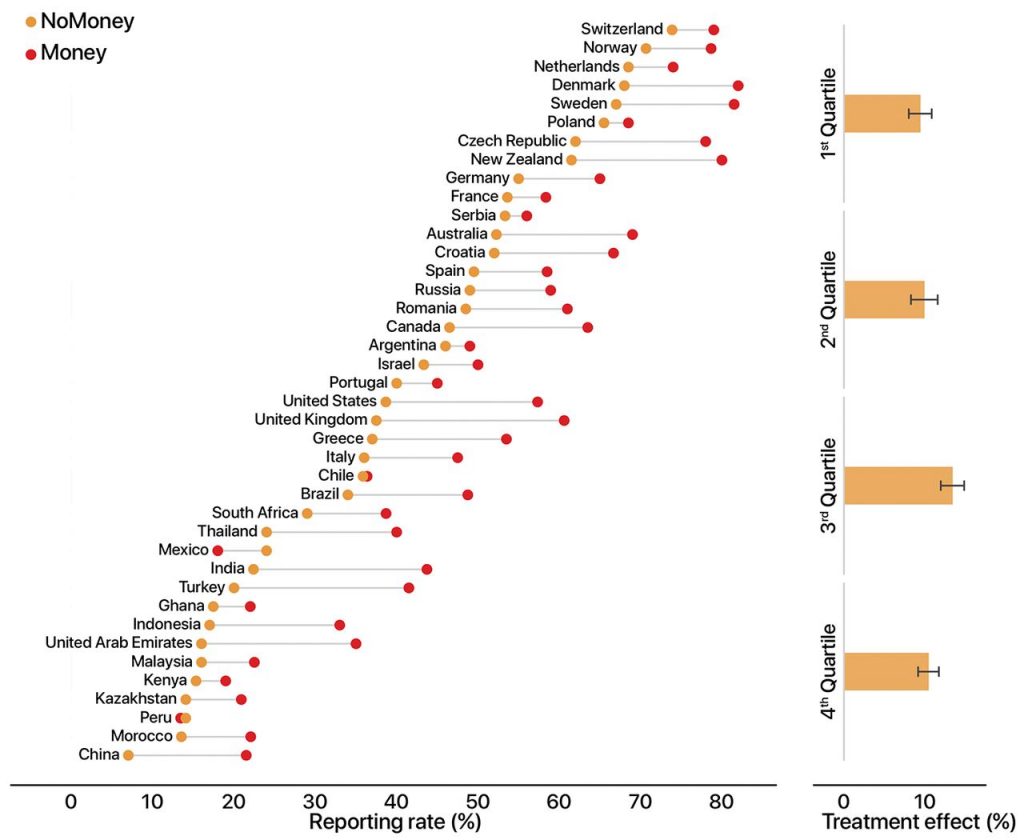While Prague in particular has a reputation for pick-pocketing,
conversely Czechs are among the people most likely to return a lost
wallet. The country ranked seventh out of 40 worldwide where wallets
were left in public with contact information.
The top five most
honest countries were no surprise: Switzerland, Norway, the
Netherlands, Denmark and Sweden, which generally top surveys for
positive cultural or political attributes. The next two perhaps were
less expected. Poland and the Czech Republic were sixth and seventh.
New Zealand, Germany and France completed the top 10, or first
quarter of the ranking.
The worst countries were China, in last place, followed by Morocco, Peru, Kazakhstan and Kenya. Also falling into the bottom half were the US at 21st and UK at 22nd.
The results stem
from a research project called Civic Honesty Around the Globe,
published in Science magazine. Researchers left wallets with contact
info for local-sounding names at various places. There were three
types of wallet: no money, about $13.45 and about $94.15 in local
currency.

“Civic honesty is
essential to social capital and economic development, but is often in
conflict with material self-interest. We examine the trade-off
between honesty and self-interest using field experiments in 355
cities spanning 40 countries around the globe. We turned in over
17,000 lost wallets with varying amounts of money at public and
private institutions, and measured whether recipients contacted the
owner to return the wallets,” the researchers said.
For the Czech
Republic, wallets were left not only in Prague but in Brno, Liberec,
Olomouc, Ostrava and Plzeň with
the names and information for
Marek Pospíšil and Václav Korbel inside.
Some of the wallets that contained money had CZK 170 and a shopping
list for milk, bread, pasta and bananas.
Researchers thought
that wallets with money would be less likely to be returned than
empty ones, but the opposite turned out to be the case.
“In virtually all
countries citizens were more likely to return wallets that contained
more money. Both non-experts and professional economists were unable
to predict this result. Additional data suggest our main findings can
be explained by a combination of altruistic concerns and an aversion
to viewing oneself as a thief, which increase with the material
benefits of dishonesty,” they added.
In the Czech
Republic, approximately 60 percent of wallets left with no money were
returned, while close to 80 percent of wallets with money were
returned.
The researchers even did an additional comparison between Switzerland, ranked seventh for corruption by Transparency International, and the Czech Republic, ranked 57th. For Switzerland, some 99 percent of wallets lost with money were returned with money intact. In the Czech Republic, it was 98 percent, which showed no statistical difference.
For returning
wallets left at hotels, the Czech Republic fell to eighth place. The
Netherlands, Norway, Croatia, Switzerland, Spain, Romania and Russia
came in ahead. Kenya was in last place, followed by China.
When adjusted for
GDP, Czechs rose to fourth place, with Poland at the top spot
followed by Serbia and Switzerland. In this measure, United Arab
Emirates was in last place.












 Reading time: 2 minutes
Reading time: 2 minutes 






















